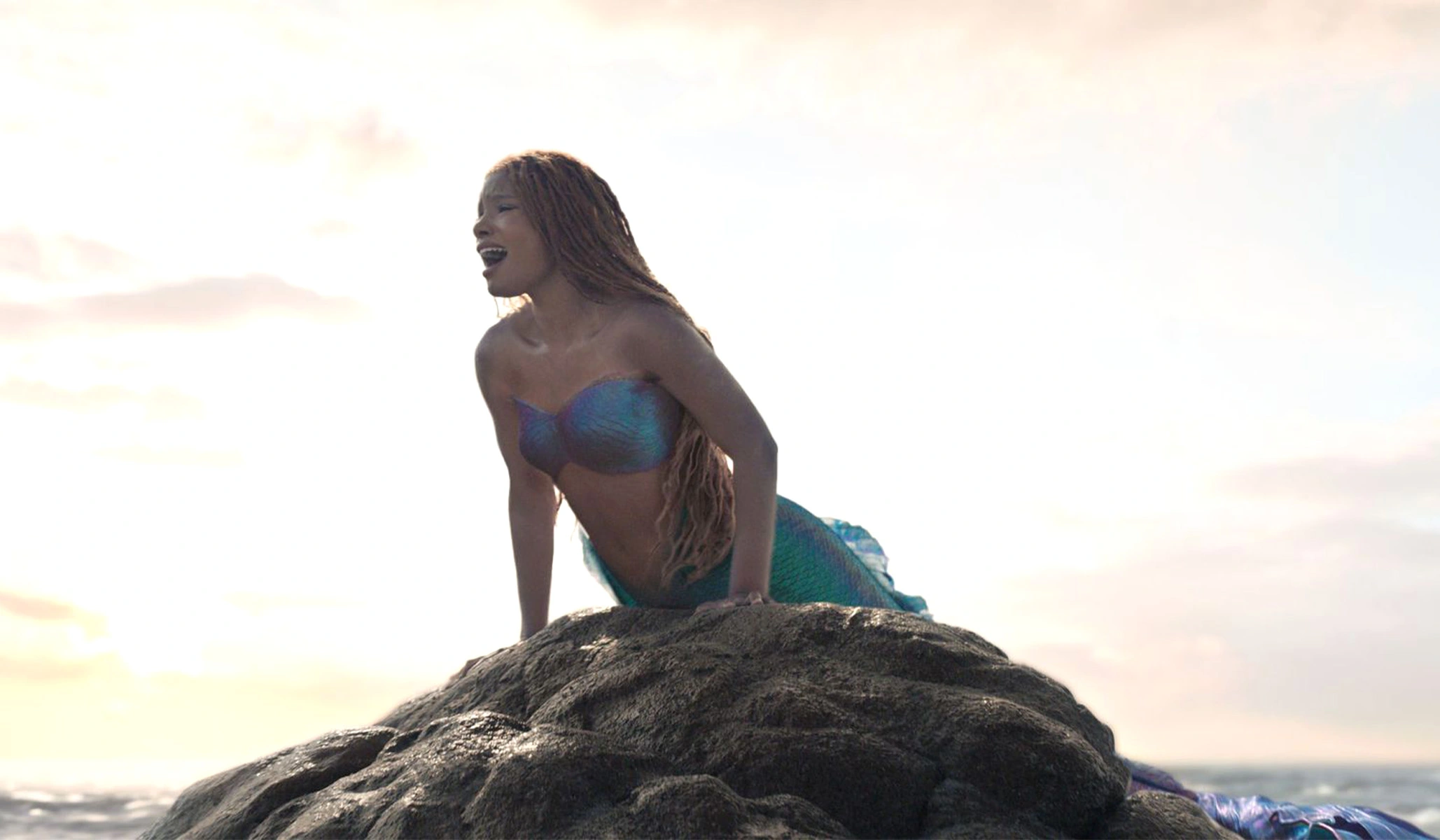In February, my family and I embarked on our first-ever trip to Walt Disney World. Regardless of one’s personal opinions about Disney, it’s difficult to deny the awe-inspiring experience of the theme park. From the park’s vast scope and scale to its efficient ability to extract money from visitors’ wallets, its pseudo-religious vibes, and its ability to unite various eras of Disney animation and contemporary brands into a single seamless pilgrimage, the overall effect is a kind of limitless cultural power. The Church of Disney extends itself backward and forward in time and space, bringing more and more properties under its sacred canopy to the point where imagining the end of the Magic Kingdom is like imagining the end of America itself.
However, the new live-action version of The Little Mermaid, with its notable African-American Ariel (singer Halle Bailey), multiethnic mer-kingdom, and a lot of narrative bloat, yields a very different feeling about Disney. If the theme parks testify to the Magic Kingdom’s imperial expansions and the vast cultural territory that its brand now holds and rules, then the mediocrity on display in a core property like this one speaks to a fundamental rot at the center of the Disney brand, an increasing failure to generate the magic that built the empire in the first place.
It isn’t that The Little Mermaid is uniquely bad; it’s that it’s tedious and unnecessary in the way of almost all the live-action remakes that Disney has been churning out over the last decade. The movie has the requisite A-list cast, re-creations of classic songs, and new additions, one of which, “Scuttlebutt,” is surprisingly good and unsurprisingly written by Lin-Manuel Miranda. It also has various progressive gestures, such as the affirmative-consent rewrite of “Kiss the Girl.” However, it has no reason to exist except that people still expect fairy tales from Disney, remakes are bankable, and making audiences fall in love with new stories seems beyond the company’s capacities at the moment.
The original movies keep coming off the conveyor belt from Disney Animation and Pixar, and some of them achieve a little more than the chronic mediocrity of the live-action remakes. But lately, few of them are loved, and few deserve to be. Moana, seven years ago, feels like the last Disney movie with a big cultural footprint. People loved the songs in Encanto, but the story was forgettable, and it’s hard to imagine any character from Luca or Onward or Turning Red or Raya and the Last Dragon inspiring passion or nostalgia among pilgrims to the Disney World of 2045.
Politics has something to do with this rut, though often in a subtle rather than a flagrant way. In the age of woke, Disney’s storytellers seem uncomfortable with the old fairy-tale reliables, such as sweeping romance and outrageous villainy, and instead keep trying to reinvent the Disney movie with more familial drama and more impersonal antagonists. Audiences aren’t fleeing a nakedly politicized Disney so much as they are drifting away from dreary storytelling. It wasn’t the presence of gay characters in last year’s inert Lightyear and tedious Strange World that tanked their box office, but that the political signaling felt particularly heavy-handed given that the movies had nothing else to offer.
The Little Mermaid isn’t tanking at the box office; it’s doing well enough, just not quite as well as Disney would have hoped. And that’s the general pattern for the Disney empire right now. Its Marvel properties have a little sag in their box office for the first time, its streaming app is being slowly dragged toward profitability by the old-fashioned expedient of raising prices, and its Star Wars investment is generating lots of TV content but no new movies since The Rise of Skywalker debuted to widespread disappointment in 2019.
There is nothing in these trends that’s stark enough to make me prophesy about the Disney empire’s decline and fall. It seems, for now, much too vast and powerful for that. But at some point, one assumes, sheer power and intellectual property are not enough. An empire of entertainment has to rule through love, not fear. And a Disney whose movies don’t inspire that love any longer is a Disney that’s more vulnerable than a visitor to the Magic Kingdom might suspect.

